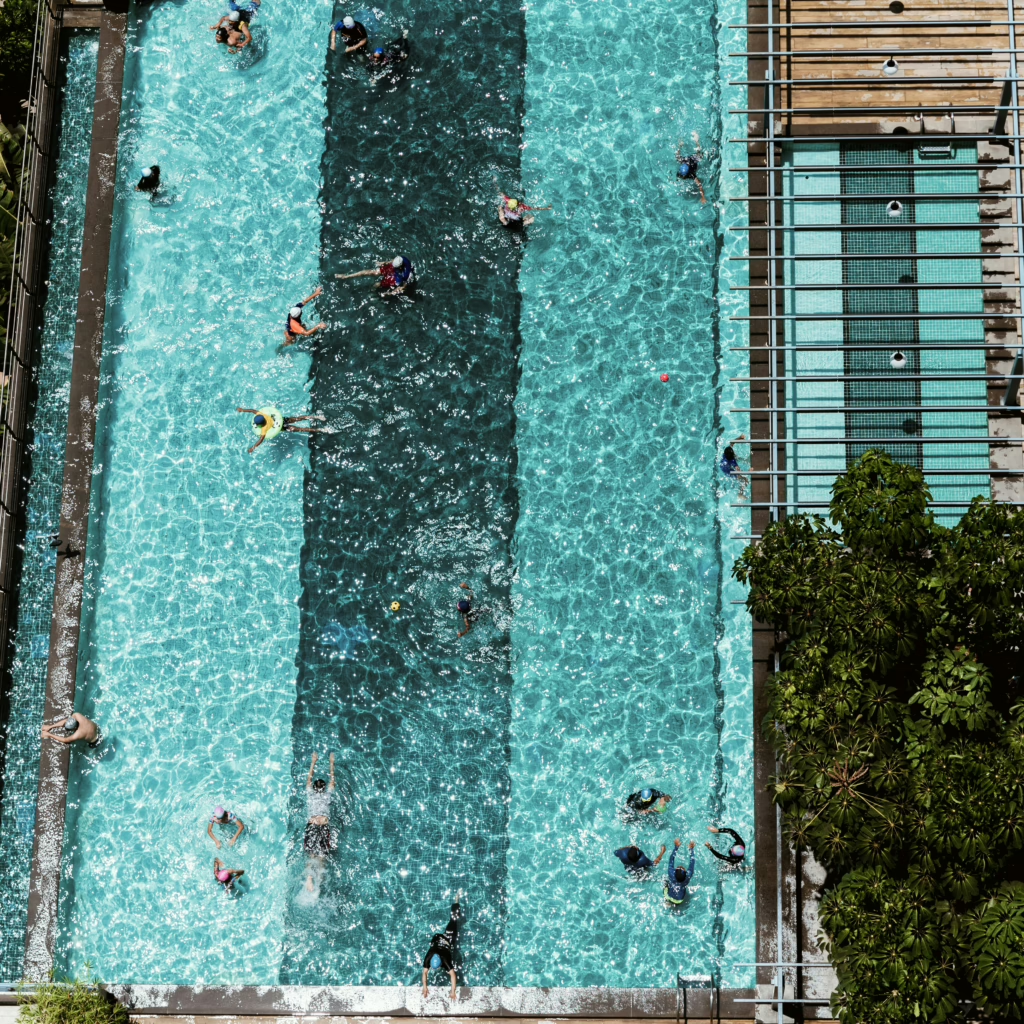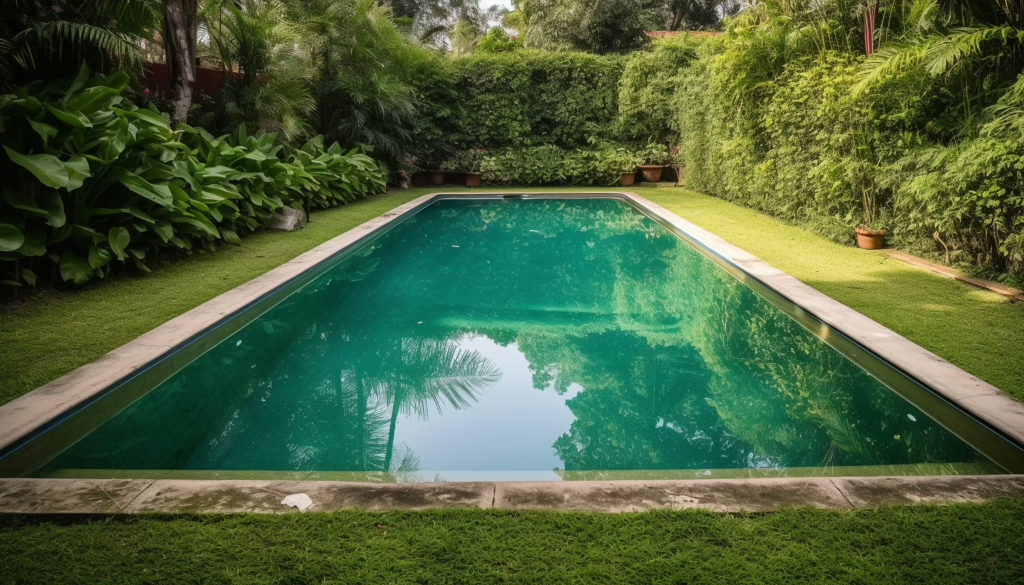Your pool’s drains are vital to water circulation, cleanliness, and safety. Yet, they’re often overlooked in routine maintenance. Neglecting pool drains can lead to many issues—clogs that impede water flow, algae buildup that turns your pool green, and foul odors that make swimming unpleasant.
Regular drain cleaning is critical to prevent these problems and ensure your pool operates efficiently. Whether you’re a homeowner or manage a commercial pool, understanding the drain cleaning process can help maintain a safe and inviting swimming environment.
In this guide, we’ll walk through the step-by-step process of pool drain cleaning, explain its importance, and share tips for ongoing maintenance. Plus, if you’re searching for pool drain cleaning near me, we’ll show you why professional help is the smart choice.
Step-by-Step Guide to Pool Drain Cleaning
Step 1: Inspection and Diagnosis
Before cleaning begins, a thorough inspection is necessary to identify issues such as:
- Clogs: Debris, like leaves, dirt, or small toys, often block drains.
- Algae Growth: Green or slimy buildup inside the drain can slow water flow.
- Structural Issues: Cracks, leaks, or damaged drain covers that require repair.
Using advanced tools like cameras, professionals can pinpoint blockages and assess the overall condition of the drain system.
Step 2: Draining the Pool (If Necessary)
Draining the pool isn’t always required for cleaning, but it may be necessary in cases of severe clogging or buildup.
- When to Drain: Draining ensures a thorough cleaning if the drains are inaccessible or debris is deeply lodged.
- Environmental Considerations: Draining should be done responsibly to avoid water waste or environmental damage. Professionals often follow local regulations and use water-recycling techniques when possible.
Step 3: Cleaning Tools and Techniques
The cleaning process involves specialized tools to remove stubborn debris and buildup effectively:
- High-pressure hoses: These blast away dirt, algae, and other contaminants from the drain walls.
- Drain Snakes or Augers: These tools dislodge and remove blockages deep within the drain system.
- Vacuum Systems: In extensive debris cases, vacuum systems ensure complete removal without scattering dirt back into the pool.
For particularly tough cases, enzymatic cleaners or eco-friendly chemical solutions may be used to break down organic matter.
Step 4: Flushing and Sanitizing
Once the drains are clear of debris, the system is flushed with clean water to remove residual dirt. Sanitizing the drains is the final step to:
- Kill bacteria and algae.
- Prevent future growth of contaminants.
- Ensure a safe swimming environment.
This step enhances the cleanliness of the drains and helps maintain the overall health of your pool water.
Step 5: Post-Cleaning Inspection
After cleaning, a professional will conduct a final inspection to:
- Check for Leaks: Ensuring that the drain system is watertight.
- Verify Water Flow: Confirming that water circulates efficiently through the system.
- Identify Additional Repairs: Addressing any remaining issues, such as cracked tiles or faulty equipment.
This step ensures that your pool is ready for use and will perform optimally in the long run.
Why Pool Drain Cleaning Is Essential
Regular pool drain cleaning goes far beyond aesthetic appeal—it’s a critical component of maintaining your pool’s health, efficiency, and safety. Neglecting this essential task can lead to severe consequences for your pool’s functionality and your wallet. Let’s break down why pool drain cleaning is so important:
1. Preventing Costly Repairs
Over time, debris, such as leaves, dirt, and other materials, can accumulate in your pool drains, leading to blockages. When this happens, the filtration system must work harder to maintain water flow, causing undue strain on the equipment. This increased workload can:
- Shorten the lifespan of your pump and filters.
- Lead to overheating or mechanical failure.
- Result in costly repairs or complete replacement of critical components.
You can prevent these issues by scheduling regular drain cleanings, saving money, and ensuring your pool operates efficiently.
2. Improving Circulation
Proper water circulation is essential for a clean and balanced pool. Blocked drains hinder this process, resulting in uneven distribution of chemicals and stagnant areas where algae and bacteria thrive. Clear drains help:
- Ensure that sanitizing chemicals, like chlorine, reach all pool areas.
- Maintain water clarity by preventing dirt and debris from settling.
- Enhance the effectiveness of your pool’s heating system, as clean water flows more efficiently through heaters.
Good circulation keeps your pool inviting and reduces the need for frequent chemical adjustments.
3. Boosting Overall Pool Health
A dirty pool drain is a breeding ground for algae, bacteria, and other harmful microorganisms. Left unchecked, these contaminants can:
- Make your pool water unsafe for swimming.
- Cause unpleasant odors or slimy textures in the water.
- Spread to other parts of the pool, requiring more intensive cleaning.
Keeping your drains clean ensures that your pool remains a safe and hygienic space for swimmers.
4. Meeting Safety Regulations
Drain maintenance is not just recommended for commercial pools—it’s required. Health and safety regulations often mandate regular inspections and cleanings to:
- Prevent drain entrapments or accidents caused by malfunctioning equipment.
- Ensure compliance with sanitation standards for public swimming pools.
- Avoid fines, closures, or liability issues related to inadequate pool upkeep.
Even for residential pools, staying proactive about maintenance helps avoid potential hazards and ensures peace of mind.
Tips for Maintaining Clean Drains
While professional cleanings are essential for deep maintenance, there are steps you can take between services to keep your drains in good condition. Regular attention to these simple tasks can prolong the life of your pool’s systems and reduce the risk of problems:
1. Skim Regularly
Debris, like leaves, twigs, and insects, often settle on the water’s surface before sinking to the bottom and entering the drains. By skimming your pool daily or after windy weather, you can:
- Prevent debris from clogging your drains.
- Minimize the workload on your filtration system.
- Keep your pool looking pristine between professional cleanings.
2. Use Drain Covers
Drain covers are inexpensive but highly effective to keep large debris and foreign objects out of your pool’s drainage system. They also enhance safety by reducing the risk of entrapment accidents. Ensure that your drain covers are:
- Properly installed and securely fastened.
- Regularly checked for cracks or damage.
High-quality covers can significantly reduce the frequency of major cleanings.
3. Watch for Warning Signs
Your pool will often give you signs that its drains need attention. Be on the lookout for:
- Slow Water Flow: Indicates partial blockages or buildup within the drains.
- Gurgling Noises: Air trapped in the system or clogs can cause unusual sounds.
- Persistent Odors: Foul smells can indicate organic material or algae decomposing in the drain system.
Addressing these issues promptly can prevent minor problems from escalating into costly repairs.
Stay Ahead with Regular Maintenance
By incorporating these preventative measures and scheduling regular professional cleanings, you can keep your pool drains—and your entire pool—running smoothly. Consistency is key to pool drain maintenance.
For expert help, search for pool drain cleaning near me and trust Cabana Pools to deliver top-quality service. Whether you need a routine cleaning or emergency drain repair, we’re here to keep your pool in peak condition. Contact us today to schedule your service!
Final Thoughts
Clean pool drains are the cornerstone of a well-maintained swimming pool. They keep your water circulating, your equipment functioning, and your pool safe for everyone to enjoy. While DIY measures help with surface-level maintenance, professional drain cleaning ensures a thorough, long-lasting solution to debris and algae buildup.
If you’re searching for pool drain cleaning near me, look no further than Cabana Pools. Our expert team provides top-notch service to keep your pool running smoothly. Contact us today to schedule a drain cleaning service and experience the Cabana Pools difference!



